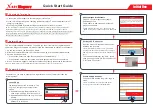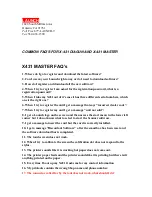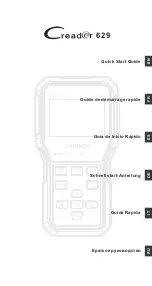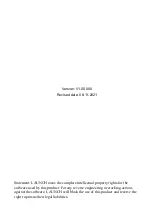
136
cycle, but need to be met on two or more consecutive drive cycles before
the DTC actually sets. The intended use of this service is to assist the
service technician after a vehicle repair and after clearing diagnostic
information, by reporting test results after a driving cycle.
a) If a test failed during the driving cycle, the DTC associated with that
test is reported. If the pending fault does not occur again within 40
to 80 warm-up cycles, the fault is automatically cleared from memory.
b) Test results reported by this service do not necessarily indicate a
faulty component or system. If test results indicate another failure
after additional driving, then a DTC is set to indicate a faulty
component or system, and the MIL is illuminated.
Freeze Frame
In most cases the stored frame is the last DTC that occurred. Certain
DTCs, which have a greater impact on vehicle emission, have a higher
priority. In these cases, the top prioritized DTC is the one for which the
freeze frame records are retained. Freeze frame data includes a
“snapshot” of critical parameter values at the time the DTC is set.
Clear DTC
This option is used to clear all emission related diagnostic data such as,
DTCs, freeze frame data and manufacturer specific enhanced data from
the vehicle
’s ECM.
A confirmation screen displays when the clear codes option is selected
to prevent accidental loss of data. Select
Yes
on the confirmation screen
to continue or
No
to exit.
I/M Readiness
This function is used to check the readiness of the monitoring system. It is an
excellent function to use prior to having a vehicle inspected for compliance to
a state emissions program. Selecting I/M Readiness opens a submenu with
two choices:
Since DTCs Cleared
– displays the status of monitors since the last time
the DTCs are erased.
This Driving Cycle
– displays the status of monitors since the beginning
of the current drive cycle.
















































